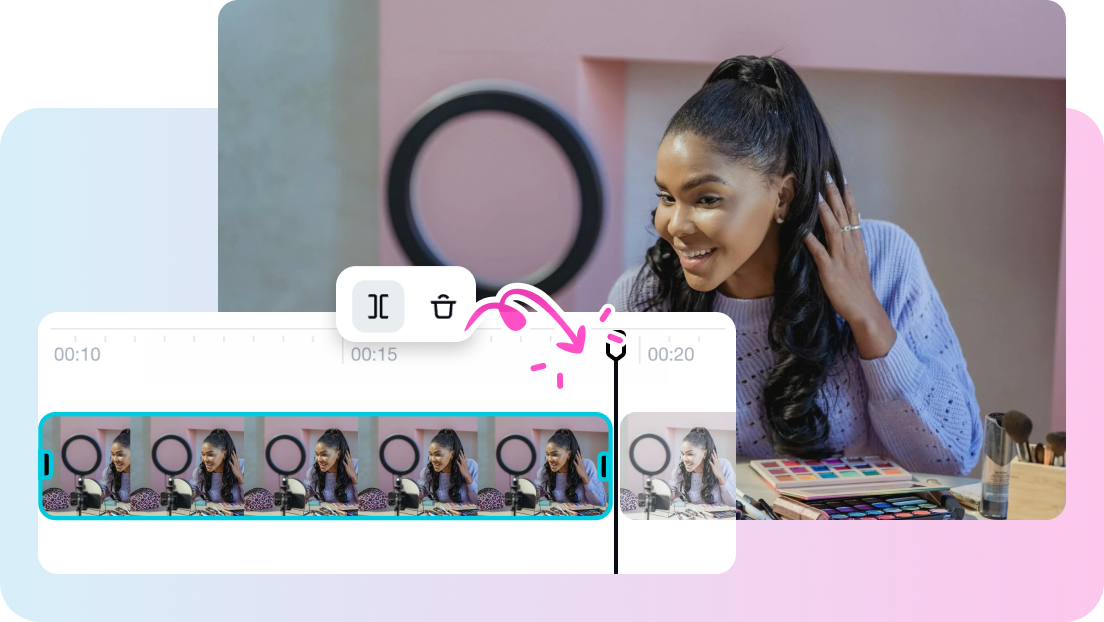Beat-driven cuts give content a sense of life. Timing is everything in a scroll-first universe, and a sharp video cutter is the secret weapon editors use to turn video into rhythmic ads that pause the thumb. Pippit brings that trimming power to everyone, providing creators instant control over beats, breath, and bounce, so ads sync with music, mood, and message without trial and error.
Why music matters before the first frame
Music is the unseen architecture of attention. Before audiences decode a logo or laugh at a joke, their bodies perceive tempo and release. Choose the soundtrack up front: a rapid beat announces energy, a minimalist piano builds intimacy, and syncopation encourages playful cuts. Where visuals breathe with music, the commercial feels composed, not cobbled together.
Use your ad as intro, hook, and coda. Visual moments equal musical notes: short notes for staccato beats, legato passages with longer holds. Repeat a visual motif at regular musical intervals to make a hook the brain will recognize. In product ads, a repeated micro action on every downbeat embeds the product and maintains energy evenly across placements.
Micro-timing: milliseconds that matter
Small trims shift perception. Shift a cut 20 to 30 milliseconds and a punchline will fall differently. Guide a note by cutting ahead of the beat to establish forward motion, or trail to allow sound to drive the image. Such micro-tweaks are why final frames are so lengthy; they make rhythm occur naturally. Match cuts on form or motion create transitions sound like drum strokes. Silence as a percussive instrument: a beat of room allows, then cutting to, heighten the following sound and invite replays. A black flash or pause of audio silence marks reveals and provides the audience with a reset before the next hook.
Realistic workflow for cutting along with beats
Start by marking beats on your audio track. Anchor visual markers to these beats, build a rough timeline, then nudge each cut for emotional precision. Export short tests to watch on a phone; viewing on the intended device often reveals mismatches invisible on the desktop.
When stills need motion
Static shots can exist within a music edit. Apply an image to video transition to include subtle parallax, light sweeps, or micro-zooms, so stills feel at home between live takes. These micro-animations boost perceived production value and maintain momentum where live action is thin.
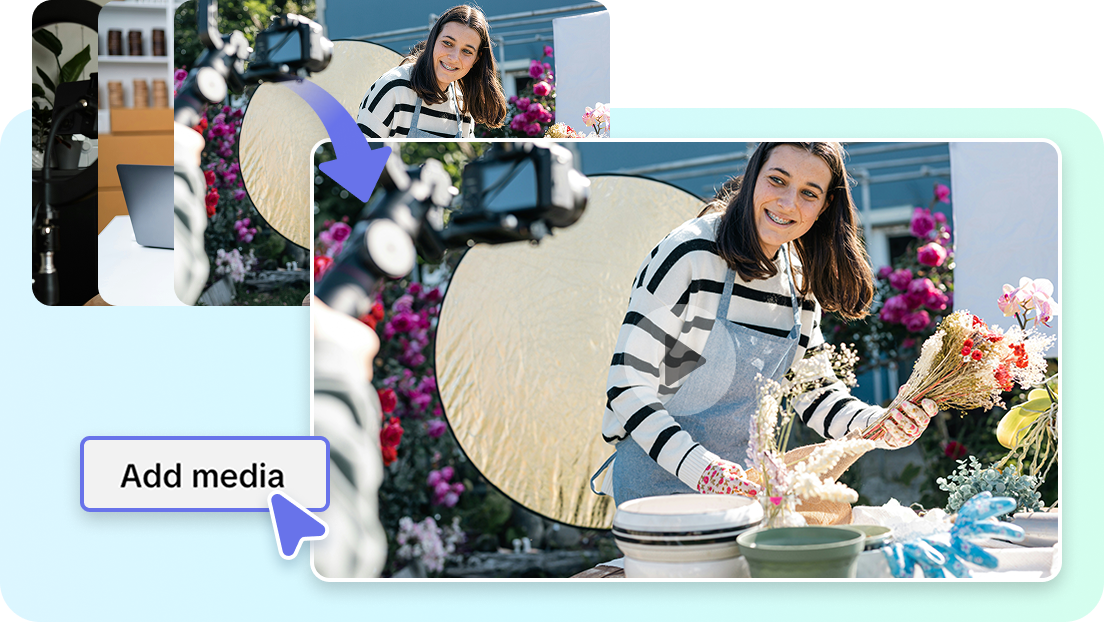
Creative tips from the edit suite
Use match-frame searches to locate natural splices, loop candidate moments to listen to artifacts, add ambient layers to bond visuals, and subtract instead of add complexity when in doubt. A brief palette of transitions and sounds unifies campaigns. Imagine three fast scenarios that demonstrate how pacing alters response. One, a snack brand timed crunches and bites to a percussive loop, cutting after every crunch; engagement spiked as users replayed to align their own taps. Two, a fashion drop used multiple match cuts of a zipper snap on downbeats; the repeated sound became a visual hook customers remembered in comments and tags. Third, a craft lesson spaced micro pauses apart before reveal frames so the audience could speculate and then rejoice over the reveal.
Three agile steps for beat-perfect cuts using Pippit
Step 1: Open video editor
First, register for Pippit and log in to view its dashboard, select Video generator under the left menu, and click Video editor. Click Click to upload to upload the video you wish to trim, or just drag and drop it into the edit interface.
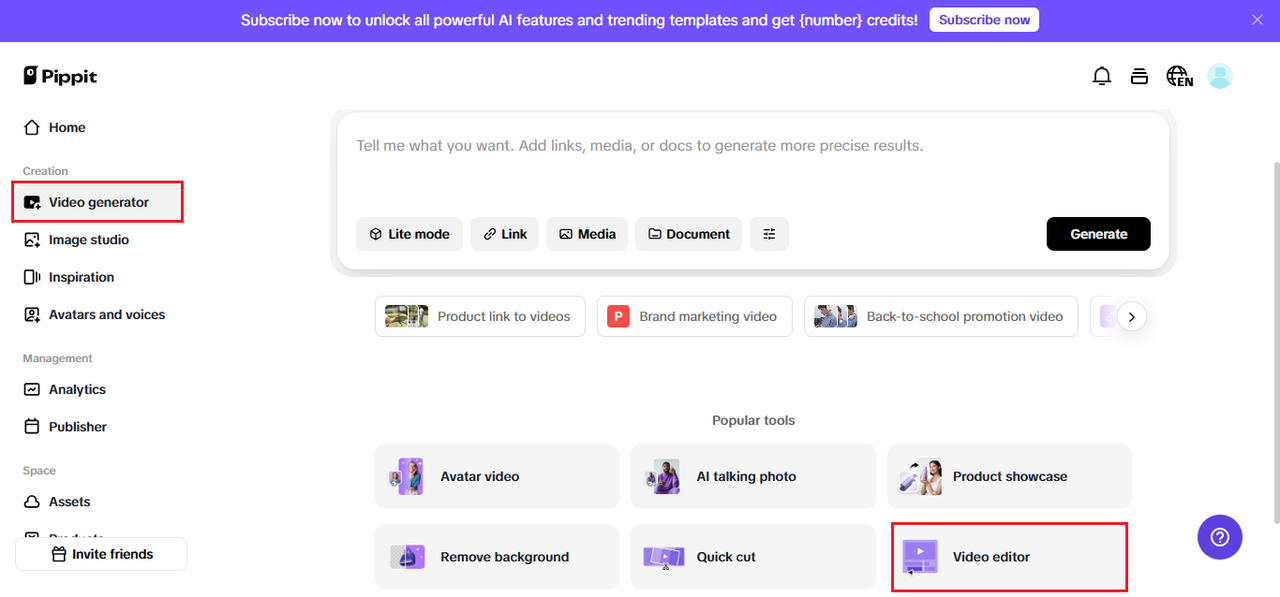
Step 2: Use the video trimmer tool
Once uploaded, position your audio onto the timeline and label beats. Select the video on the timeline and use the transform handles to shorten the start and end edges by dragging. Make use of the Playhead to locate exact frames and press Split to separate pivots. Nudge cuts frame by frame to synchronize visuals with audio hits.
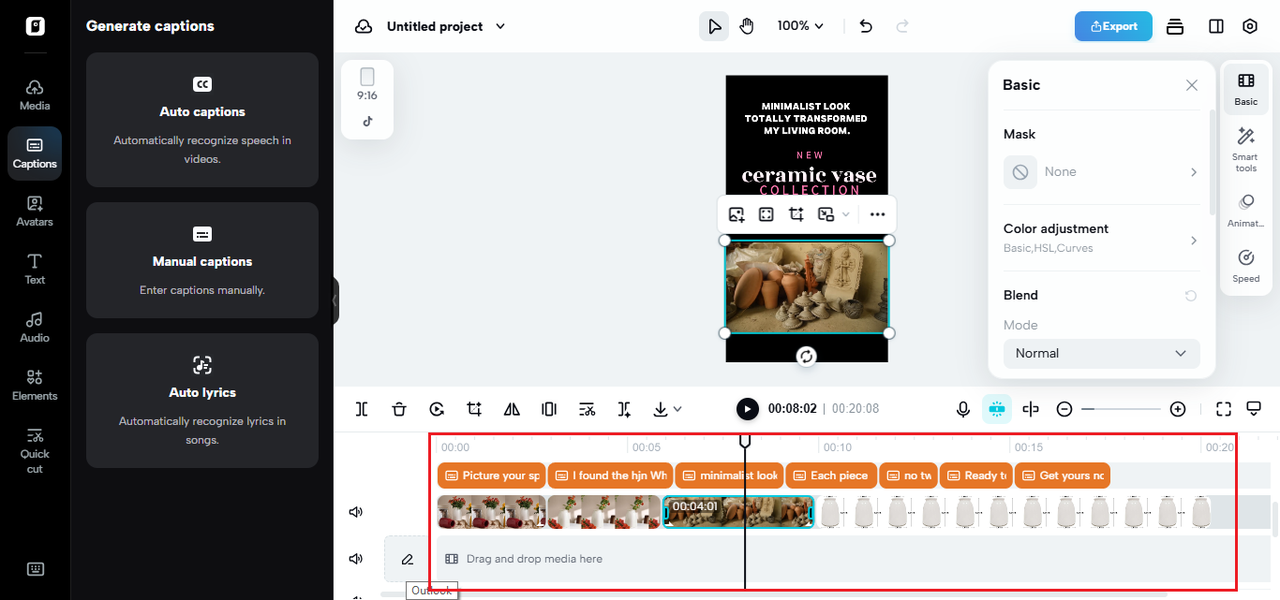
Step 3: Export or share the completed ad
Preview on mobile, final nudge tweaks, then Export in the top right. Select Download or Publish, choose resolution and format, and export your beat-cut ad to share across social media.
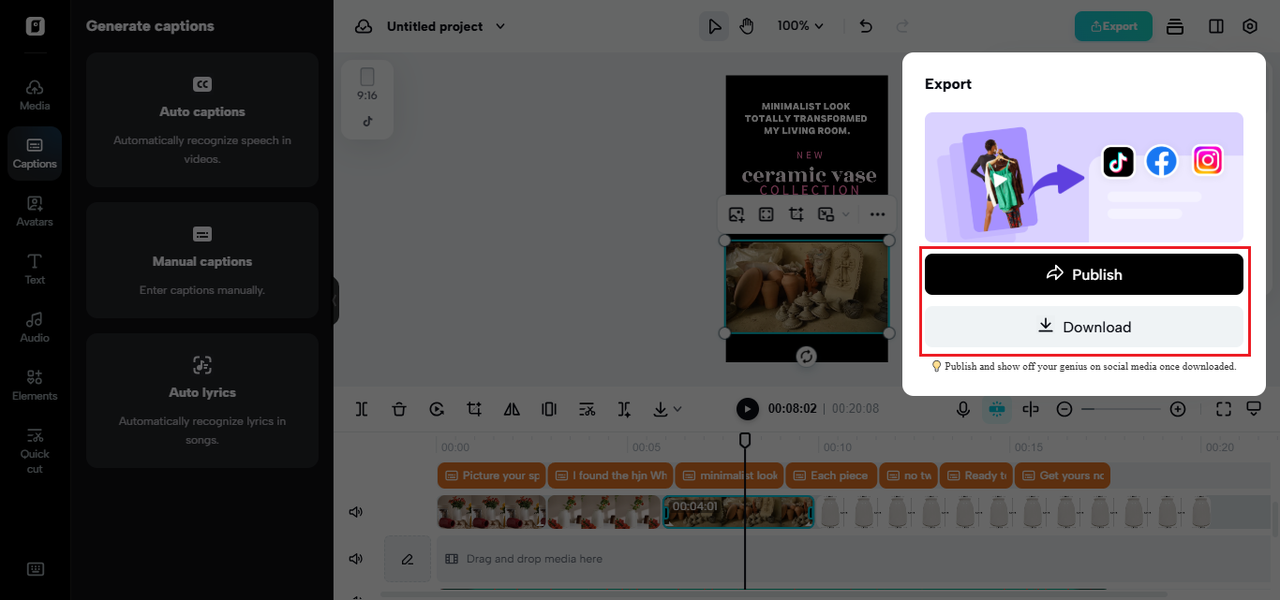
Applying reversal as seasoning
A minor reversed moment can act as a banger. Reverse a small interaction, splash, cloth smoothing, or hand gesture, and time it to a percussive hit for a pleasant surprise using Pippit’s video reverser. Reverse sparingly; too much shatters forward logic and disorients the viewer.
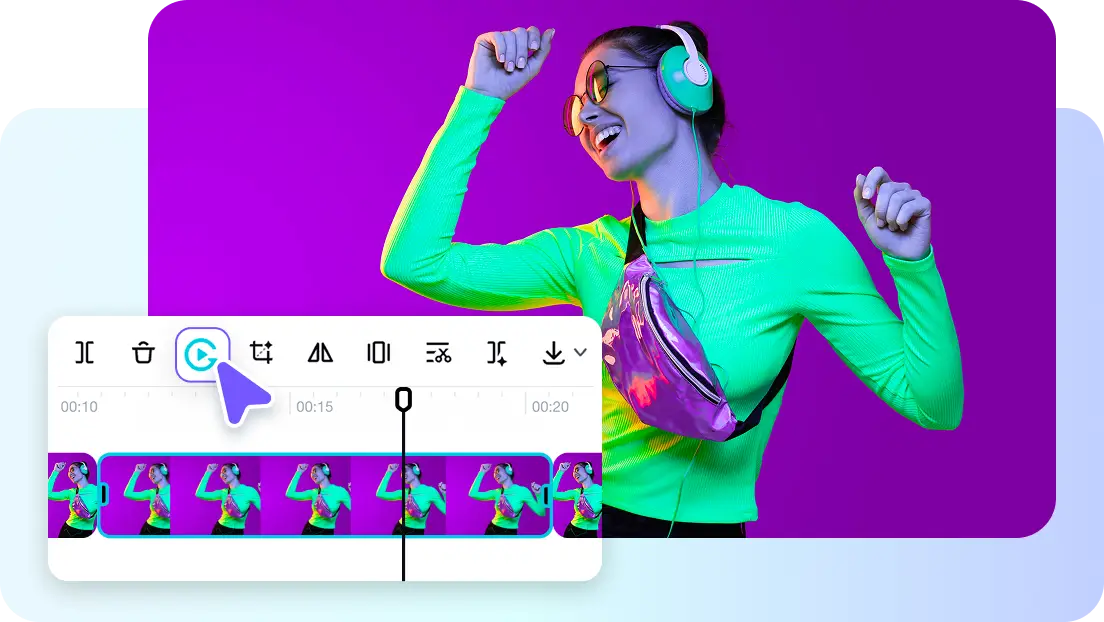
Dialogue, voiceover, and rhythmic speech
Treat speech as melody. Place key words on strong beats and trim to maintain natural breaths. For voiceover, cut lines so they ride off the music. Staccato short hooks are effective in quick ads; conversational pacing is appropriate for longer work.
Platform tempo differences
Various platforms favor varied tempos. Quick cuts thrive on TikTok and Reels with replay drive reaches. A bit slower cadences can be used for Facebook or LinkedIn. Construct platform-based edits from a master timeline by adjusting beat density and coda length.
Final tweak and checklist
Save versions for rapid A B testing. Rhythm is the unseen hand that directs attention. With Pippit you can fine-tune cuts, breathe life into stills, and experiment with reversal flourishes so that ads flow with music, not against it. Ready to write your next social ad. Open Pippit, edit to the beat, and release ads that move people. Small timing changes make a difference.
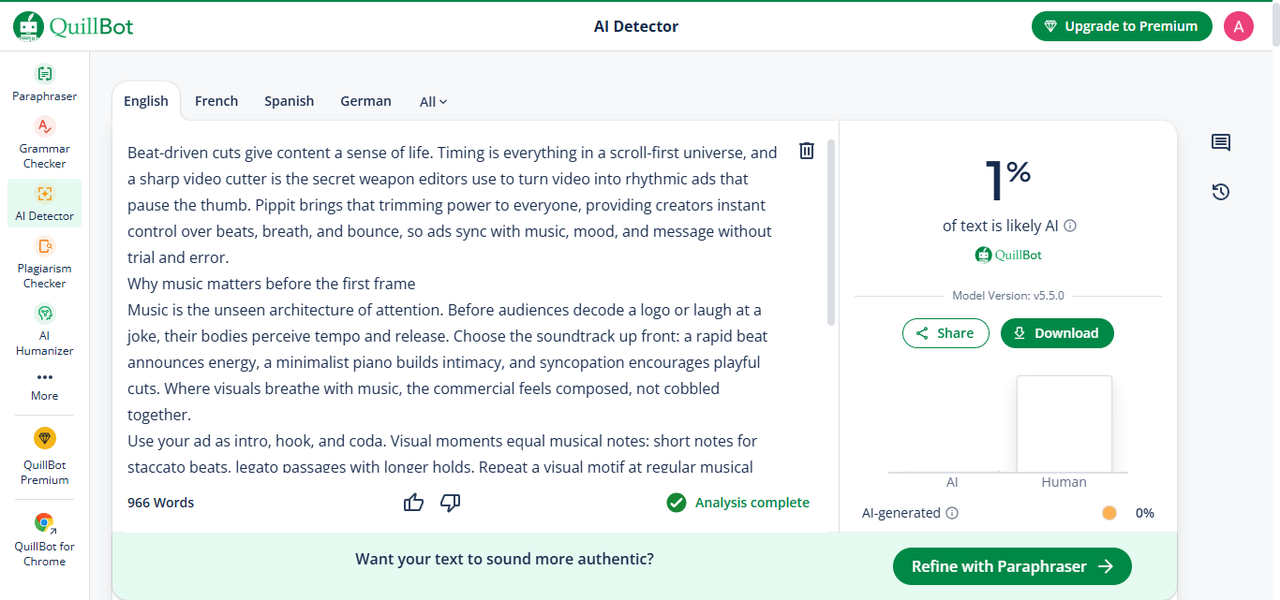
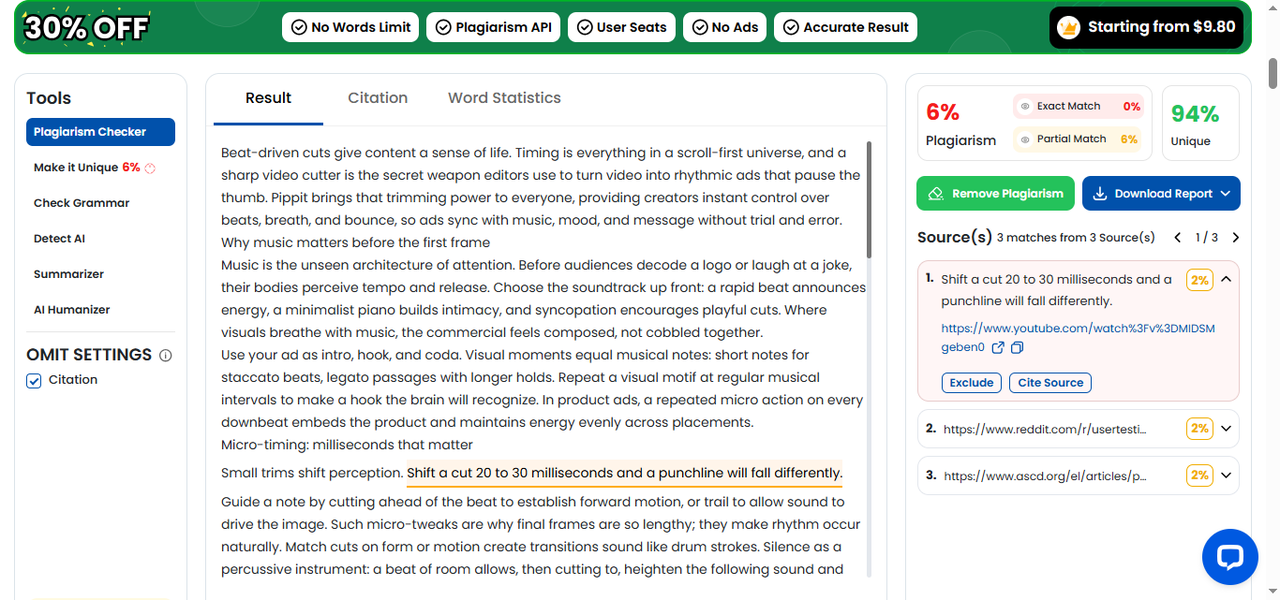
The post Pacing magic: using cuts to create rhythm in social media ads appeared first on tooXclusive.
Disclaimer:The opinions presented in this post are those of the mentioned author. The content has been sourced from TooXclusive, with due attribution to the company.
If you wish for us to take down this content, kindly get in touch as soon as possible. This material is shared strictly for promotional purposes only.



